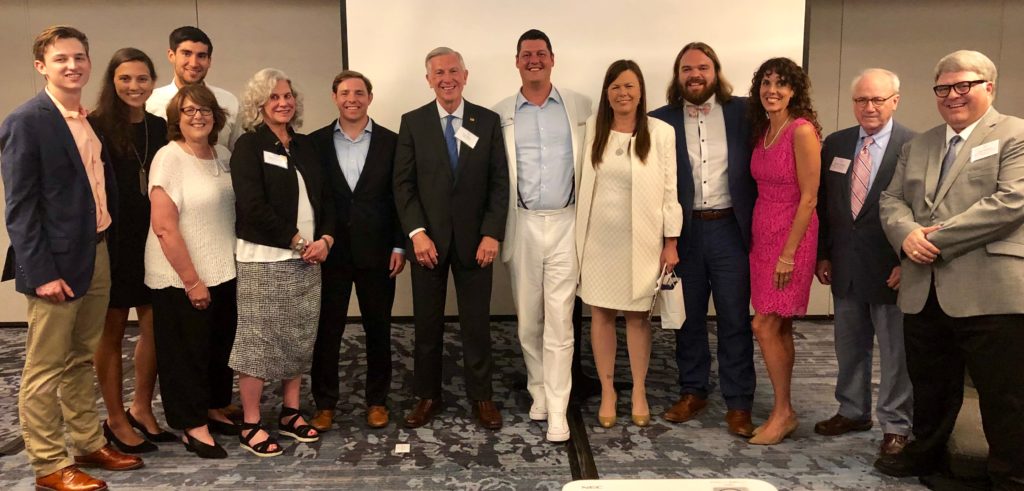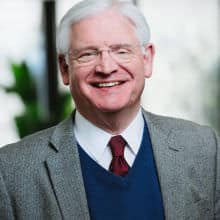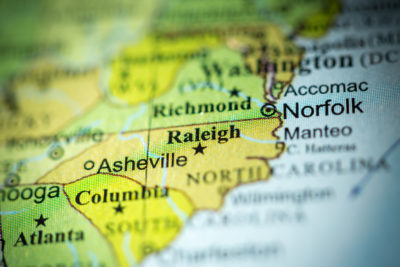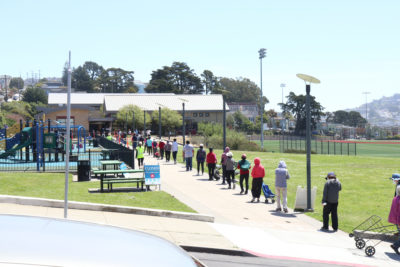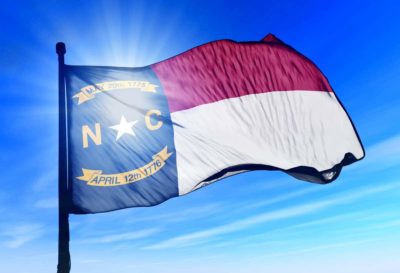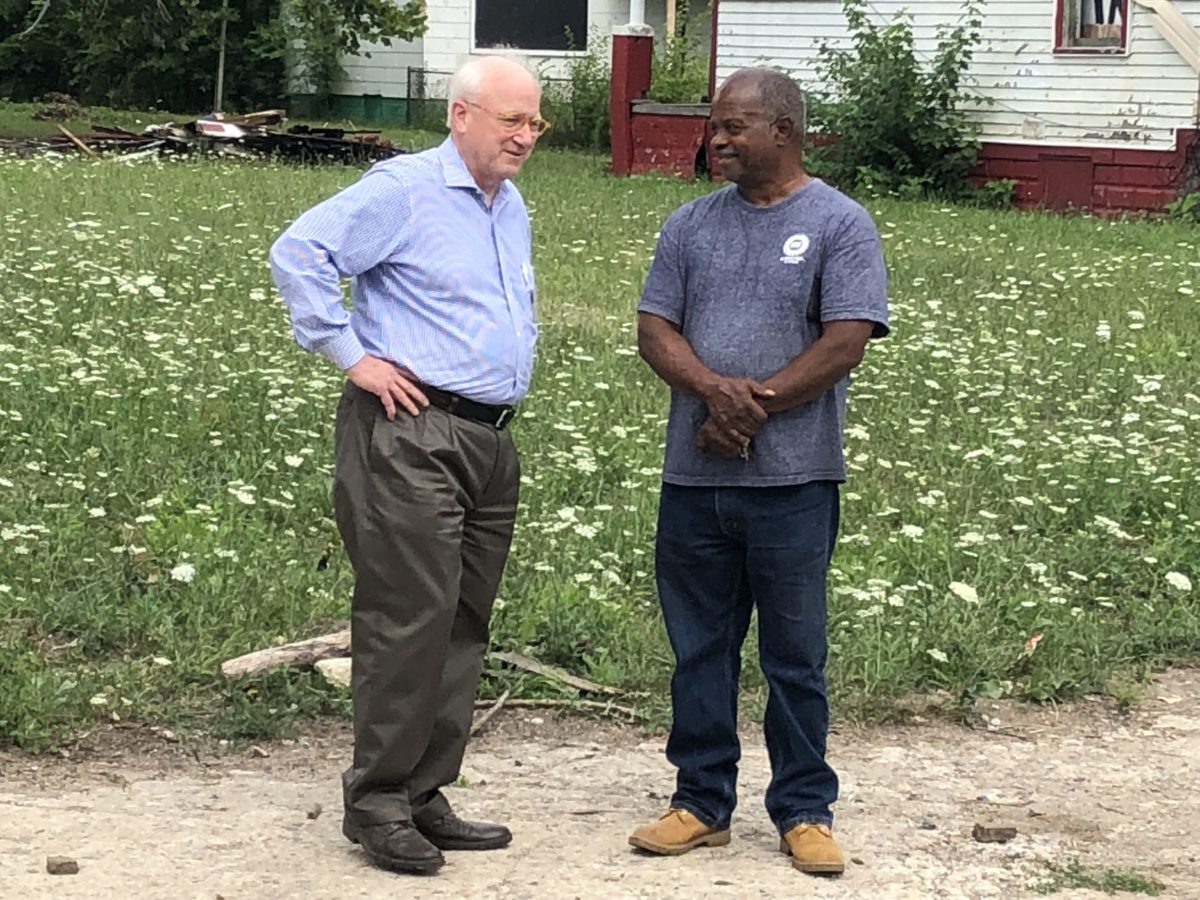
Later this month, Ferrel Guillory — co-founder of EdNC — will retire from the faculty of UNC’s Hussman School of Journalism and Media after 23 years of distinguished service.
EdNC joins Ferrel’s many friends in celebrating this milestone, while we quietly rejoice that he is not retiring as our editorial advisor and our strong link to the grand traditions of American journalism.
EdNC is largely a reflection of Ferrel’s character, experience, and judgment, so we’re glad he’s staying put. As we begin our sixth year of operations in January, we think it is high time to celebrate his role in creating EdNC.
Memories fade, but our best recollection is that the idea emerged and grew during our frequent breakfast meetings at Big Ed’s in Raleigh, a venerable salon where ham biscuits and tire-sized pancakes inspire serious conversation.
The appalling decline of newspaper journalism was always part of the conversation, with Ferrel as our expert source. It was a national phenomenon, he explained, driven by the economic realities of the internet, as inexorable as any other technological change. Advertising was migrating to new platforms like Google and Facebook, classified ads were moving to Craigslist and other online alternatives, subscribers were finding other sources for news, and owners were reacting predictably as their revenues crashed.
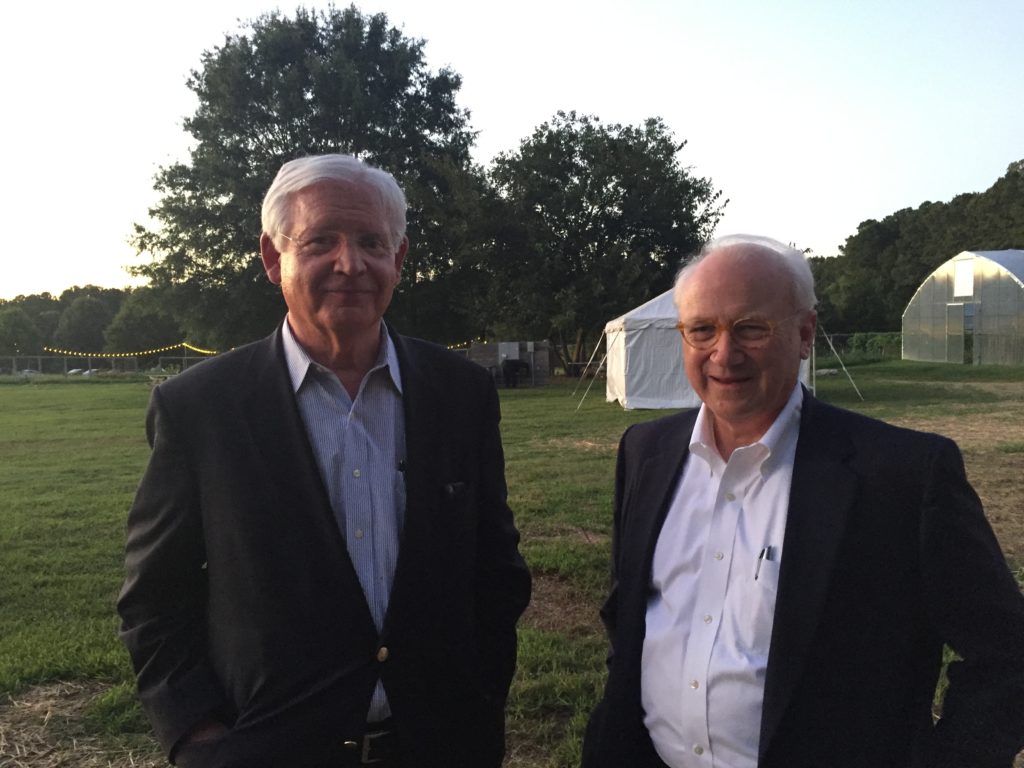
Newspapers were hardly perfect, but most were run by honorable people devoted to truth and their readers. We depended on them to enable our citizenship. Newspapers were never our only source of information, just an indispensable one. For democracy to work, people needed factual, independent, high-quality journalism to understand what is happening, what is not happening, and what is needed.
Each day brought fresh reports of newsroom carnage as reporters and editors watched careers vanish. The decline was awful to watch, like a fire consuming a home.
Knowing the reasons for the decline did not help. It seemed we were losing an ancient pillar of democracy. It was easy to imagine dire consequences, and our first concern was the potential impact on public support for education.
Countless times, we knew from personal experience, newspaper reporting had inspired creative public responses to challenges facing public education. And now, it seemed, we needed to find or create an alternative, some kind of robust online communications hub to provide essential news and a forum to sustain public engagement. Over time, it became a project.
Ferrel guided all of our conversations. He helped us study the nation’s most promising models until, finally, a design emerged. We then found the generous and visionary initial donors, secured strong executive leadership, and launched the new venture in January 2015. It was another lasting gift from Ferrel Guillory to the people of North Carolina.
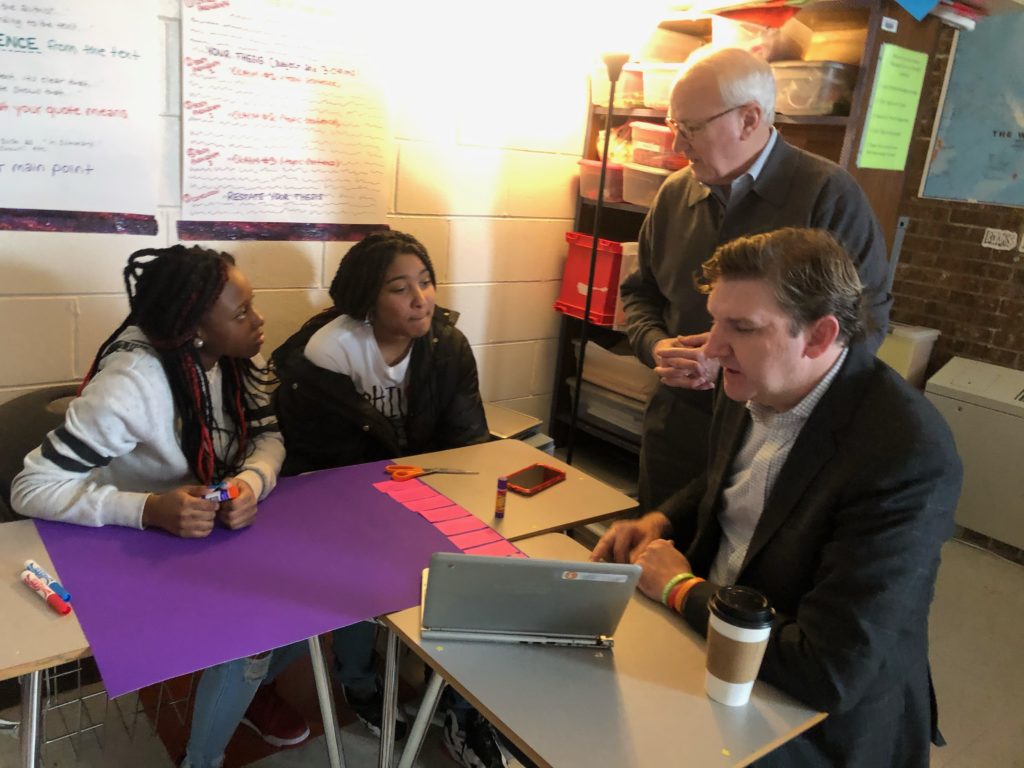
Guillory speaks with students in Edgecombe County. 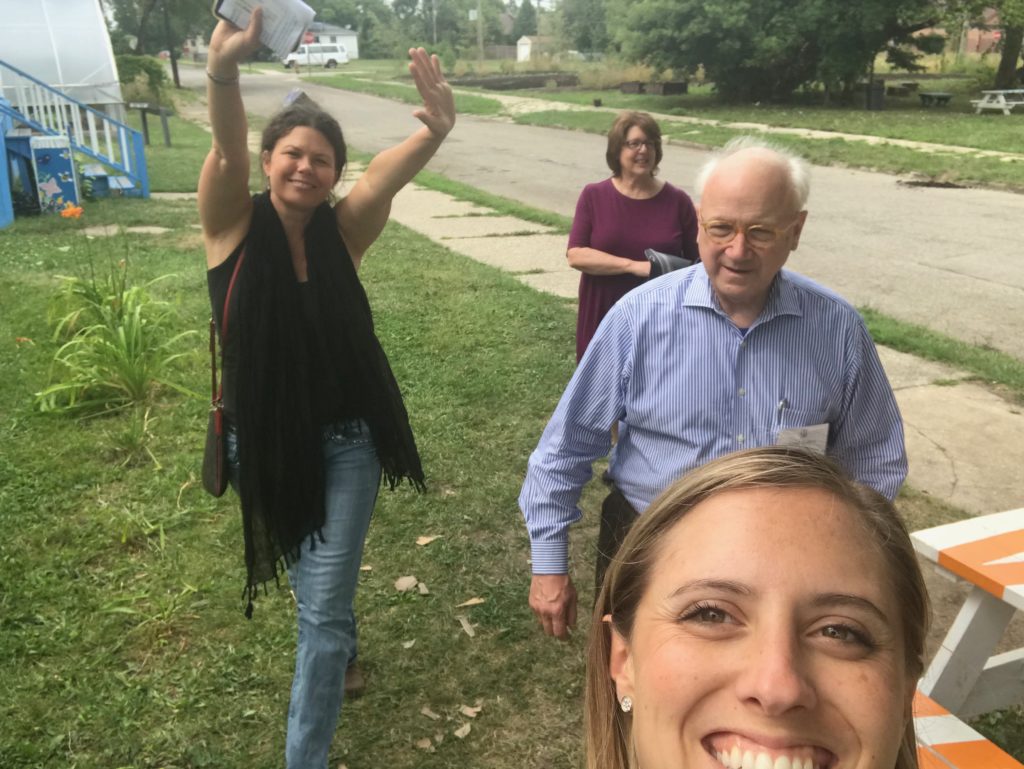
Ferrel attended the Governmental Research Association’s conference in Detroit in 2018.
Ferrel grew up in Louisiana, where he learned from his mentor-teachers in Catholic schools that he had the ability and thus the obligation to serve others. They wisely helped him explore professional options, and before graduation from Loyola University, he knew journalism would be his path to service doing work he loved.
After graduate work at Columbia, he returned with his wife Kat and baby Kristen to New Orleans where his brilliant writing for the States-Item soon came to the attention of the Raleigh News & Observer. The offer to become chief capitol correspondent, working with legendary editor Claude Sitton, was irresistible. Ferrel began the first of his several North Carolina careers on Labor Day, 1972.
He chose the moment well. North Carolina politics lurched from blue to purple that year with the victories of President Nixon, Sen. Helms, Gov. Holshouser, and Lt. Gov. Hunt. That election season was his crash course, a time of learning about his new home, and since then he has been one of the great explainers of North Carolina’s history, politics, government, and culture.
During his long N&O career, Ferrel served as chief capitol correspondent, chief of the Washington Bureau, editor of the editorial pages, and southern correspondent writing about the monumental forces of change throughout the region. And for 20 years, he contributed a weekly column, a must-read for everyone interested in public affairs.
In 1995, Ferrel took a two-year leave from the N&O to serve as writer-in-residence at MDC to continue his work on transitions in the American South. Since its founding by Gov. Sanford and the North Carolina Fund in the 1960s, MDC had provided constant leadership to expand opportunity in North Carolina and throughout the southern region. While at MDC, Ferrel developed its signature annual publication, The State of the South, still one of the most influential annual publications documenting regional challenges and progress.
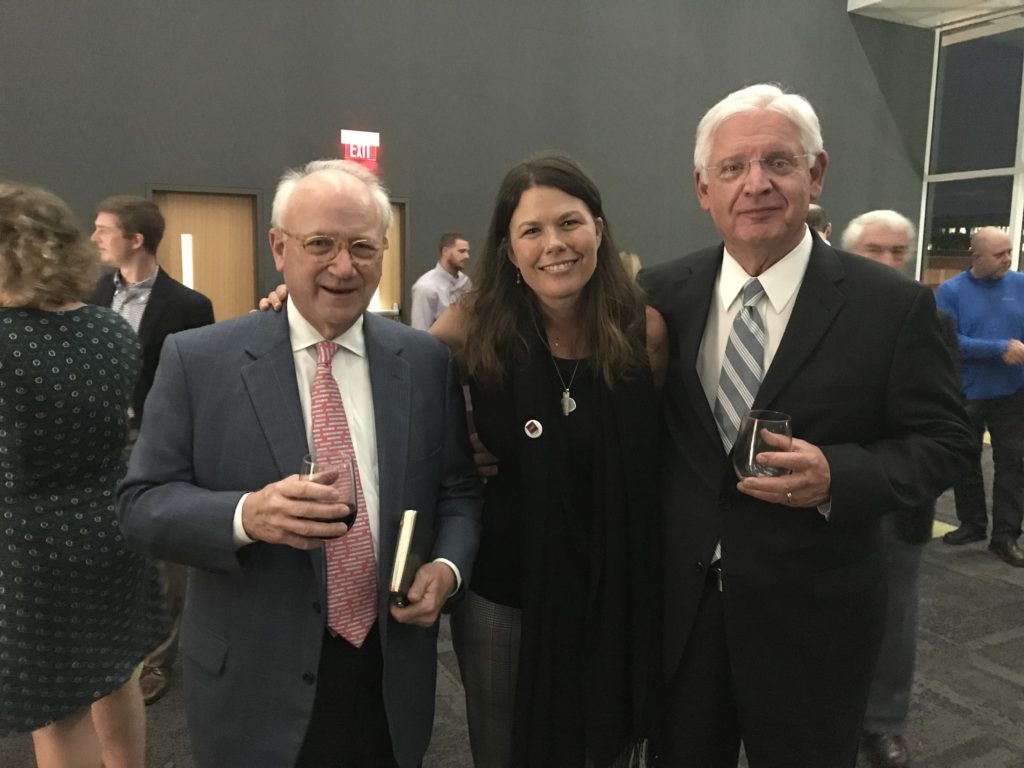
Also while at MDC, Ferrel organized the Program on Southern Politics, Media, and Public Life (now the Program on Public Life) to be based at UNC, and in 1997 he accepted an invitation to join the faculty of UNC’s journalism school (now the Hussman School of Journalism and Media).
At UNC, Ferrel taught and nurtured hundreds of students. He advised the school on strategic choices to strengthen its programs. He continued his leadership of the Program on Public Life to inform the public agenda and nurture leadership by providing “research brokerage’’ that connected the work of scholars to the work of civic and community leaders, elected officials, journalists, and opinion leaders, providing a lasting example of the vast potential for leadership by public universities.
For decades, in addition to his formal job at the moment, Ferrel provided quiet and generous counsel to governors, legislators, journalists, students, aspiring leaders, and countless others on the major challenges facing our state and our people. He convened leaders from government, business, and journalism to expand their understanding of major issues, and he nurtured an array of new organizations, like EdNC, attempting to address critical public challenges.
Ferrel’s story is large and inspiring, and thankfully it is unfinished. Those who do not know him might wonder how he became such a trusted and consequential figure, but for his lucky friends there is no mystery. He is simply extraordinary, professionally and personally. He is kind and decent and wise. He lives by the Christian imperative to help others whenever he can. Long before Ferrel was a college professor, probably long before he was a reporter, Ferrel was a natural teacher who understood, as his teachers did, that great teaching succeeds less by instruction than by helping others find their full potential.
The highest compliment for EdNC always will be that it strives to reflect Ferrel’s values. The board, the staff, those who use and rely on the journalism, and most of all the co-founder, will always be in his debt for what we have learned from him, for his counsel, and for the precious gift of his friendship and leadership.
